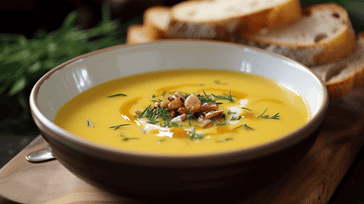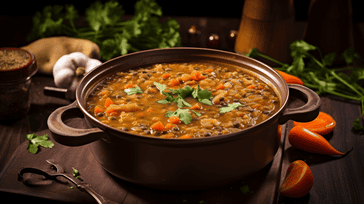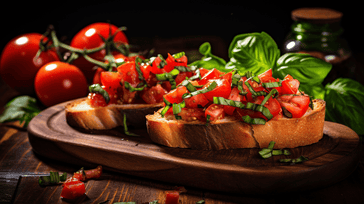
Welcome to our ultimate guide for making delicious pork carnitas! This authentic Mexican dish is a crowd-pleaser and a perfect addition to any dinner table or party spread. In this comprehensive article, we will provide you with easy-to-follow recipes and a step-by-step cooking guide for making perfect pork carnitas every time.
What Are Pork Carnitas?
Pork carnitas are a classic Mexican pork dish that is slow-cooked until tender and flavorful. The word "carnitas" translates to "little meats," and the dish typically consists of shredded or chopped pork that is crispy on the outside and juicy on the inside. This authentic Mexican dish is traditionally made with pork shoulder or pork butt, seasoned with a blend of spices, and slow-cooked until it can be easily shredded.
The origins of pork carnitas can be traced back to the Mexican state of Michoacan, where it is still a popular dish today. It is often served at special events, such as weddings and festivals, and is a staple in many Mexican households. While it is traditionally served with tortillas and garnished with cilantro and onion, there are many variations of the dish that can be adapted to personal preferences.
Slow-Cooked Pork: The Key to Perfect Pork Carnitas

Slow-cooking pork is the key to achieving the tender, juicy, and flavorful meat that is the hallmark of pork carnitas. There are several slow-cooking methods that you can use to prepare your pork, each with its own advantages and disadvantages.
One popular method is to cook your pork in a slow cooker. This allows you to set it and forget it, with the pork cooking for several hours until it is falling apart tender. Another option is to braise the meat, which involves cooking it in a flavorful liquid until it is tender and juicy.
Regardless of the method you choose, it is important to give your pork enough time to cook low and slow. This allows the fat to render and the connective tissue to break down, resulting in meat that is full of flavor and melts in your mouth.
If you're short on time, you can also use an electric pressure cooker to achieve similar results in a fraction of the time it takes to slow-cook your pork. However, keep in mind that using a pressure cooker may result in meat that is not quite as tender as when it is slow-cooked.
Easy Pork Carnitas Recipe
Here’s a simple recipe for making authentic pork carnitas at home. It’s perfect for those who want to experience the delicious flavors of Mexican cuisine without spending hours in the kitchen.
| Ingredients: |
|
|---|
Instructions:
- In a large skillet or Dutch oven, brown the pork over medium-high heat until it’s browned on all sides. Remove from heat and transfer to a slow cooker.
- Add the onion, garlic, chili powder, cumin, paprika, salt, black pepper, orange juice, and lime juice to the slow cooker with the pork.
- Cook on low for 6-8 hours, or until the meat is tender and falls apart easily.
- Using a fork, shred the pork into small pieces. Discard any excess fat.
- Preheat the broiler. Spread the shredded pork in a single layer on a baking sheet and broil for 3-5 minutes, or until the pork is crispy and golden-brown.
- Sprinkle with cilantro, and serve hot with your favorite toppings and sides.
Enjoy your homemade pork carnitas!
Serving Suggestions for Pork Carnitas

Pork carnitas are a versatile dish that can be served in a variety of ways. Here are some ideas for using this flavorful shredded pork:
- Tacos: Serve pork carnitas as a filling for soft or hard-shell tacos, topped with diced onions, cilantro, and a squeeze of lime for a fresh and zesty finish.
- Nachos: Layer tortilla chips with pork carnitas, melted cheese, and your favorite toppings for a satisfying and crowd-pleasing snack or appetizer.
- Sandwiches: Stuff a crusty roll with pork carnitas, fresh avocado slices, and a drizzle of spicy mayo for a delicious and filling sandwich.
- Burritos: Wrap pork carnitas, rice, beans, and guacamole in a warm tortilla for a hearty and satisfying meal on the go.
Don't forget to add some garnishes and accompaniments to enhance the flavors and textures of the dish. Some options include:
- Chopped cilantro
- Sliced jalapeños
- Sour cream
- Guacamole
- Pico de gallo
- Shredded cheese
Experiment with different combinations and find your perfect match for serving pork carnitas!
How to Achieve Crispy Pork Carnitas
While tender and juicy pork carnitas are delicious on their own, there's something irresistible about the crispy bits that come from pan-frying or broiling. Here are some tips on how to achieve perfectly crispy pork carnitas:
- Shred the pork into small pieces: The smaller the pieces, the more surface area there is to crisp up. Use a fork or tongs to shred the pork into bite-sized pieces after slow-cooking.
- Heat a non-stick pan or cast-iron skillet: A non-stick pan or cast-iron skillet will prevent the pork from sticking and help with even browning.
- Use a bit of oil: Toss the shredded pork with a small amount of oil to help with browning.
- Spread the pork out in a single layer: Avoid overcrowding the pan, as this will steam the pork and prevent it from crisping up. Work in batches if necessary.
- Be patient: Allow the pork to cook undisturbed for a few minutes to develop a crispy crust. Use tongs to flip the meat and continue cooking until the other side is crispy as well.
Another technique for achieving crispy pork carnitas is to broil the meat in the oven for a few minutes after slow-cooking. Simply spread the shredded pork out on a baking sheet and broil on high for a few minutes until the edges are golden brown and crispy.
With these tips, you'll be able to enjoy the best of both worlds with tender and crispy pork carnitas.
Variations of Pork Carnitas

While traditional pork carnitas recipes typically call for a few staple ingredients, there's plenty of room for experimentation and personalization. Here are some tasty variations to try:
- Spicy pork carnitas: Add some heat to your carnitas by incorporating jalapeños, chipotle peppers, or red pepper flakes into the mix.
- Citrus pork carnitas: Instead of cooking the pork with water, use orange juice or lime juice to add a tangy, citrusy flavor to the dish.
- Carnitas tacos: Shred the pork and serve it in corn tortillas with your favorite taco toppings, such as cilantro, diced onion, or crumbled queso fresco.
- Carnitas nachos: Top a plate of tortilla chips with shredded pork, beans, cheese, and your favorite toppings for an easy and delicious snack or meal.
- Carnitas bowls: Serve the carnitas over a bed of rice or quinoa, and top with veggies, salsa, and avocado for a healthy and hearty meal.
Don't be afraid to get creative with your pork carnitas recipe. Try adding different spices and herbs, experimenting with different cooking methods, or incorporating unique flavors to make the dish your own.
Freezing and Storing Pork Carnitas
Leftover pork carnitas can be easily frozen and stored for future use. Follow these guidelines to ensure the best quality and flavor:
- Allow the pork carnitas to cool down to room temperature before storing.
- Divide the pork carnitas into portion sizes that are suitable for your needs. For example, you can use freezer-safe bags or containers to store single servings or family-sized portions.
- Remove as much air as possible from the container or bag to prevent freezer burn.
- Label the container or bag with the date and contents to keep track of the food in your freezer.
- Store the pork carnitas in the freezer for up to 3 months for best quality.
When you're ready to use the frozen pork carnitas:
- Thaw the pork carnitas in the refrigerator overnight.
- Reheat the pork carnitas in a skillet or microwave before serving.
- For extra juiciness, add a splash of water or broth to the skillet before reheating the pork carnitas.
With these tips, you can enjoy delicious, juicy pulled pork carnitas anytime you want, even if you made them weeks ago!
Tips and Tricks for Perfect Pork Carnitas
Here are some additional tips and tricks to help you achieve the best results when making pork carnitas:
- Choose the right cut of pork: The best cuts for pork carnitas are pork shoulder, pork butt, or pork leg. These cuts have a good balance of fat and meat, which helps to create juicy and tender pulled pork.
- Marinate the meat: Before slow-cooking the pork, consider marinating it for a few hours or overnight. This can enhance the flavors and add more depth to the dish. Try marinating with citrus juices, garlic, and spices.
- Use a cast-iron skillet: For crispy pork carnitas, use a cast-iron skillet or a heavy-bottomed pan to pan-fry the meat after slow-cooking. This will help to create a golden-brown and crunchy texture.
- Add herbs and spices: Experiment with different herbs and spices to add more complexity to the dish. Consider adding bay leaves, cumin, oregano, or smoked paprika.
- Don't overcrowd the pan: When pan-frying the pork carnitas, make sure not to overcrowd the pan. This can prevent the meat from getting crispy and golden-brown.
- Adjust the seasoning: Taste the pork carnitas as you go and adjust the seasoning as needed. Add more salt, spices, or herbs to enhance the flavors.
Frequently Asked Questions (FAQ) about Pork Carnitas
Here are some common questions readers have about this delicious Mexican dish:
- What does "carnitas" mean?
- What cut of pork is best for carnitas?
- Can I make pork carnitas in a slow cooker?
- What toppings go well with pork carnitas?
- Can pork carnitas be made ahead of time?
- What are some alternatives to pork for carnitas?
- Are pork carnitas gluten-free?
- What is the difference between carnitas and pulled pork?
The term "carnitas" translates to "little meats" in Spanish. It refers to the small pieces of slow-cooked pork typically used in this dish.
Pork shoulder or butt are the ideal cuts for pork carnitas as they have a good balance of fat and meat that make for tender, juicy pork.
Absolutely! Slow cooking pork carnitas in a slow cooker can be a great way to achieve tender, flavorful pork without having to constantly monitor it. Just be sure to sear the meat before adding it to the slow cooker for added texture.
Pork carnitas are often served with toppings such as chopped onions, cilantro, lime wedges, and avocado. Queso fresco or cotija cheese are also popular additions.
Yes! Pork carnitas can be made ahead of time and stored in the refrigerator for up to 3 days or in the freezer for up to 3 months. Reheat in a skillet or oven until heated through and crispy.
While pork is the traditional meat used in carnitas, other meats such as beef, chicken, or lamb can also be used. However, keep in mind that the flavor and texture may differ from traditional pork carnitas.
Typically, yes! Pork carnitas are often gluten-free as they are made with just meat and seasonings. However, it's important to check the ingredients of any additional sauces or toppings used.
Carnitas and pulled pork are similar in that they both involve slow-cooking meat until tender and shredding it. However, carnitas are typically seasoned with traditional Mexican spices and cooked in lard for added flavor.
Expert Tips for Authentic Pork Carnitas
For the most authentic experience when making pork carnitas, it’s essential to stick to traditional cooking techniques and ingredients. Here are some expert tips to help you achieve the best results:
Choose the Right Cut of Pork
For juicy, tender pork carnitas, it’s crucial to choose the right cut of meat. Look for pork shoulder or butt, which have a good balance of fat and muscle. Avoid lean cuts like pork loin, as they may dry out during cooking.
Invest in a Good Quality Dutch Oven
Using a Dutch oven can help you achieve tender, flavorful pork carnitas. This type of pot distributes heat evenly and allows the meat to cook slowly and evenly. Look for a heavy-duty Dutch oven with a tight-fitting lid.
Use Traditional Flavorings
To get the most authentic flavor from your pork carnitas, use traditional Mexican ingredients like garlic, onion, cumin, and oregano. Some recipes may also call for cinnamon or bay leaves.
Cook Slowly and Patiently
The key to tender, juicy pork carnitas is to cook the meat slowly over low heat. Many traditional recipes call for several hours of braising or slow-cooking in the oven. This allows the flavors to develop and the pork to become meltingly tender.
Don’t Skimp on the Garnishes
When serving pork carnitas, don’t forget to add plenty of fresh toppings and garnishes. Traditional options include chopped onion, cilantro, lime wedges, and sliced avocado. These add brightness and freshness to the rich, savory flavor of the meat.
By following these expert tips, you can create the most authentic, delicious pork carnitas right in your own kitchen.
Conclusion
Now that you have learned all about pork carnitas, it's time to put your knowledge into practice. With the easy-to-follow recipes and tips shared in this article, you can impress your family and friends with delicious and flavorful pork carnitas.
Remember to take your time when cooking the pork to ensure it is tender and juicy. Experiment with different spices and flavors to create your own unique variations of this tasty dish. And don't forget to serve your carnitas with your favorite toppings and sides.
Whether you prefer them crispy or tender, in tacos or on their own, pork carnitas are a versatile and delicious dish that everyone can enjoy.
Ready to start cooking?
Get your ingredients ready and try out one of the recipes shared in this article. With a bit of practice and patience, you can master the art of making pork carnitas and become the go-to chef in your household.
We hope you enjoyed this article and found it informative. If you have any additional questions or suggestions, feel free to leave a comment below.
Happy cooking!







